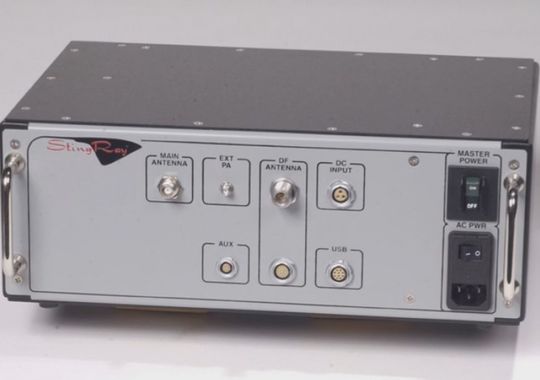BOISE -- Cell phone signal interception is a growing concern and is happening around the country, including right here in Idaho.
Millions of signals are sent to cell phone towers every second. Security specialist, Buzz Bruner, says some of those signals are being diverted. At the end of September an interception was detected in Idaho Falls.
"What's intercepting these calls is what's known as cell interceptors, which are virtually the size of a suitcase or briefcase," said Bruner.
They're called Stingray devices. Defense contractor Harris Corporation is the biggest provider. A spokesperson for the company says the devices are only issued to law enforcement and the government.
No agency in the Treasure Valley will admit to or confirm using one. However, a spokesperson with the Boise Police Department says they use something like it when trying to track down suspects. A regional FBI agent would only tell us the Stingray is a sensitive technique so no one will discuss how it's used.
We can explain how it works, though. Bruner says the Stingray mimics a cell phone tower by getting a phone to connect to it and measuring signals from the phone. It lets the Stingray operator ping or send a signal to a phone and locate it as long as it's powered on.
"When the good guys use interceptors they need to have court orders or warrants," explained Bruner. "When the bad guys assemble it they don't need anything. It's not hard in today's world to actually put together a device that can target certain phones and intercept the calls."
Bruner works for ESD America. The company makes secure cell phones for military and businesses so customers can talk over encrypted communication lines. Bruner says they have located dozens of suspicious signals across the country.
"Cell phone interception is becoming prevalent in today's world," said Bruner. "If you discuss high value information on a cell phone, don't."
Although anyone could be a target, he says business leaders are most at risk because criminals know they could be talking about high value information.
"That information, when it gets in the wrong hands, it can be very damaging to corporations and small businesses," said Bruner.
Plus, it's fairly easy to construct an interceptor. Bruner says it only requires a laptop, cell phone card and an antenna. The cost would be less than $1,000.
ESD America tracks suspicious signals by customer reports. The company then posts them so people know. It's elective, so Bruner says he's sure there are many cell phone signals being diverted by criminals every day. Idaho had one report at the end of September in Idaho Falls.
To see a map of cell phone interceptions, click here.


![635506364031635737-635505693203137567-11.2-signal-interception-1 [ID=18436447]](http://www.gannett-cdn.com/-mm-/4affce369fcaae2b68bbdd59cb9bea8435896b9d/r=500x351/local/-/media/KREM/None/2014/11/03/635506364031635737-635505693203137567-11.2-signal-interception-1.JPG)
